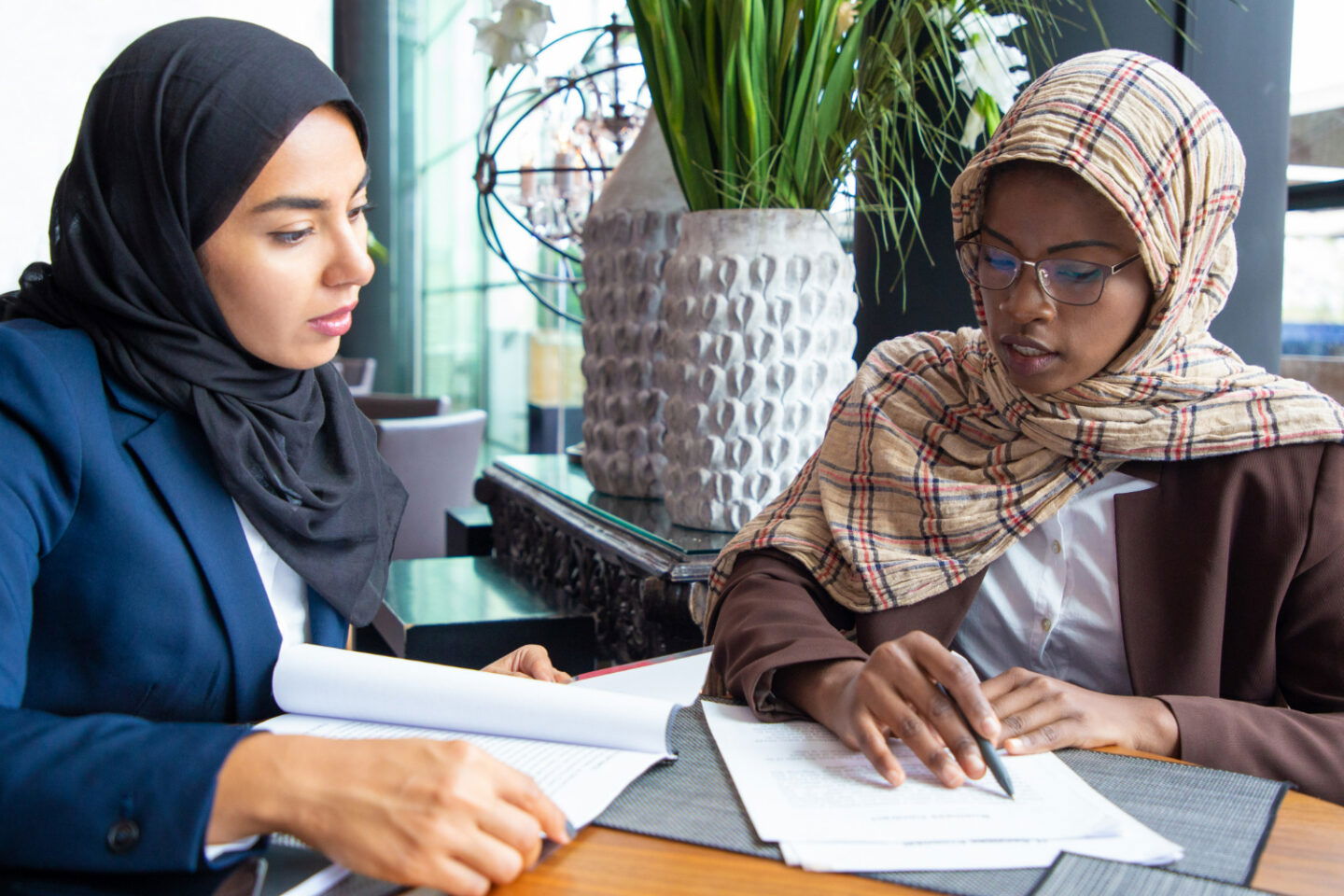IB Global Politics IA: Essential Tips for a High Score

Harun is a Senior IB Examiner for Global Politics Paper 2 and Extended Essay, with a deep passion for Global Politics and a PhD in the subject. He teaches his students to approach assessments strategically and effectively, building their confidence and critical thinking as they aim for top results. As an examiner he offers insider knowledge on how to approach the IB Global Politics IA and external exams. You can read Harun’s full profile here.
Article reviewed and updated by Harun, July 8th, 2025.
The IB Global Politics Internal Assessment (IA) provides students with the opportunity to demonstrate the application of skills and knowledge by conducting an inquiry into a political issue at the local or community level. As a significant component of the IB Global Politics course, the IA carries substantial weight in the final grade – 30% for HL and 20% for SL – requiring students to approach it with focus and strategic planning.
In a nutshell students are expected to present their solution to the political issue they actively engaged in. In this article, Harun lends his insights as a Global Politics examiner to explore the key elements of the Global Politics IA and provide essential tips for achieving a high score.
Need help with IB Global Politics?
IB Global Politics IA Assessment Criteria
Understanding the IB Global Politics IA rubric is key to scoring well. It helps you know exactly what the examiners are looking for. The assessment focuses on a few main areas: how well you’ve researched, how deeply you’ve engaged with the political issue, and how you’ve communicated your findings.
Here’s a quick reminder of the key criteria you need to focus on for your Global Politics IA. Harun recommends keeping these in mind as you work through your project. The IA will be marked to a maximum of 24 points according to the criterion presented below.
Here is the table from the official guide:
- Criterion A: Explanation and Justification: Make sure your chosen political issue is relevant, clearly identified, and well-explained. It should be something that you can justify as important and interesting.
- Criterion B: Process: You’ll need to show how you research and engage with the political issue. Primary (direct involvement) and secondary (outside research) sources should back up your findings.
- Criterion C: Analysis and Synthesis. Don’t just describe the issue. You need to analyse it critically. Make sure to connect it to the theories and concepts you’ve learned, and show a deep understanding.
- Criterion D: Evaluation and Reflection. Reflect on your research process. Think about what went well and what didn’t, and be aware of your biases when making conclusions.
- Criterion E: Clear Communication.Your report should be well-organised, easy to follow, and concise. It’s all about making sure your ideas come across clearly.
Understanding these criteria is crucial because they outline exactly what examiners seek. Remember them throughout your IA, and you’ll be on the right track.
IB Global Politics IA Structure and Format
The final product of your IA is a written report of maximum 2000 words. Although the IB official guide does not specify the exact range for the word count, as an examiner, Harun recommends keeping in mind that the general approach is that any report with 10% less words than this is considered for a mark deduction.
Harun also explains that Higher Level (HL) students must also carry out further research to formulate and present a separate recommendation section of maximum 400 words.
Structure and format
Your Global Politics Internal Assessment should follow a clear and logical structure to keep everything organised and make it easier for your reader to follow your argument.

Here’s a simple breakdown of how you should structure your report:
- Introduction
Start by identifying the political issue you’re exploring, explain why it’s important, and link it to your engagement activity. This sets the stage for the rest of your report. Harun emphasises that students should remember that although there is a local or communal political issue at the heart of Internal assessment, it is vital to connect this local issue with a wider global political concept.
You might be interested in environmental issues, political representation, or any inequalities that exist in your local environment. This interest and issue must be linked to global politics key concepts accordingly. To get a full mark you should effectively integrate your research with your experiential learning that will take outside of your classroom.
- Body
This is where you present your research and analysis in response to the local political issue you have identified. You should present your engagement in the form of interviews, attending meetings or visiting institutions or stakeholders.
Make sure you go into detail, evaluating the political issue and supporting your points with secondary sources and evidence from your engagement.
It is equally important to present your primary research results too. For example, students can organise or volunteer in political activities.
- Conclusion
Wrap it up by summarising your findings, answering your research question, and reflecting on what you’ve learned. Don’t forget to discuss the broader implications of the issue.
For HL students, there must be a separate section where students present their recommendations to the political issue they have actively engaged and researched.
- Bibliography
In this section, be sure to cite all your sources correctly. This shows that you’ve done thorough research and keeps everything transparent.
By following this structure, you’ll keep your work clear and organised, ensuring all the essential components are covered. It’s a simple formula that works!
Key Tips for the IB Global Politics Engagement Activity
The global politics IB IA kicks off with the Engagement Activity, where you get hands-on with your chosen political issue. Here are some helpful tips to guide you through this stage:
1. Choose a Relevant and Interesting IB Global Politics IA Topic
Choosing the right topic is important, so take your time with this step. Harun insists it should be something you’re genuinely interested in, and that relates to your community or society somehow. Remember, the IB Global Politics IA topics should help you connect with real-world political issues.
Here are a few things to keep in mind when selecting your topic:
- Make sure it ties into the core themes of the course. You can choose from power, sovereignty, human rights, development, or peace and conflict.
- Pick a topic with enough research potential that allows you to get involved in a subject that interests you, whether through interviews, attending events, or joining campaigns related to the issue.
This is your chance to dive into something you care about while gaining hands-on experience with global politics.
2. Present Clear and Direct Evidence in IB Global Politics IA
It’s really important to present clear and direct evidence in your IB Global Politics IA. Harun recommends making sure that credible sources back up every claim you make. Avoid vague statements or generalisations that don’t have solid evidence behind them. Use real-world examples and data to strengthen your analysis and show that you’ve done thorough research.
3. Assure Ethical Considerations
Ethics are really important in your IB Global Politics IA. When working on your project, make sure you stay objective, especially if you’re dealing with sensitive political issues. It’s crucial to respect cultural sensitivities and always ensure that everyone involved in your engagement activities consents. Also, be mindful to avoid any biases in your research and analysis. This helps keep your work fair and balanced.
4. Be Engaged in the Political Issue
Engagement is key to your Global Politics IA. It’s not just about collecting data but getting hands-on with the issue. Try attending political events, interviewing people directly involved, or even volunteering with an NGO working on the topic. The more you immerse yourself in the issue, the more profound and more insightful your analysis will be.
Need help with this subject?
100 % of tutors are certified teachers and examiners
Key Tips for Writing the IB Global Politics IA Report
Once you’ve gotten hands-on experience with your political issue and have gathered all the research, it’s time to start writing your report. Here are some key tips to help you through the writing process:
1. Understand the IB Global Politics IA Assessment Criteria
The IB Global Politics IA rubric is your guide to success. Take the time to fully understand each criterion and refer to them as you review your report. Make sure you cover all the points in the rubric.
2. Use Diverse Sources
Remember to use a mix of sources to strengthen your analysis. Pair the primary data from your engagement activities with secondary sources like academic journals, books, news articles, and government reports. This variety will deepen your analysis and demonstrate a well-rounded approach to your topic.
3. Document Your Experiences
Remember, the structure of your Global Politics IA asks you to reflect on your engagement activities. It’s essential to keep a detailed record of everything you do, as you do it. The more thoroughly you describe your experiences in your report, the easier it will be to show how your personal involvement connects to the political issue you’re exploring. So, make sure to document everything well. It will make your analysis stronger.
4. Follow a Clear Report IB Global Politics IA Structure
Make sure your Global Politics IA report has a clear and logical structure. Start with a strong introduction providing the necessary context, then move on to a well-organised body to present your analysis and findings. Finish with a conclusion summarising your research and reflecting on what you’ve learned. Keep everything neat and organised. Don’t make it harder for your reader by messily presenting your ideas.
5. Reflect on Different Perspectives
Understanding different viewpoints is crucial in global politics. Be sure to include a variety of perspectives in your analysis. This will enrich your report and demonstrate your ability to think critically about the issue.
6. Be Objective and Analytical in IB Global Politics IA
When writing your Global Politics IB IA, avoid any biases. Present facts, evidence, and analysis in a neutral way. It’s perfectly okay to share your own viewpoint, but remember that it should be supported by solid evidence, not just your personal opinion. Stay objective!
7. Ensure IB’s Formatting Guidelines Are Met
Your IB Global Politics internal assessment will be marked on how clear and organised it is. Make sure to follow the IB’s formatting guidelines carefully. This means paying attention to things like font size, margins, citation style, and word count limits. It’ll help make sure your report looks professional and is easy to follow.
8. Connect Your Experiences to Political Theories
Remember, understanding political theories is key in global politics. Connect your personal experiences and research to the theories and concepts you’ve learned in class. This helps show how real-world issues fit into the bigger political picture and demonstrates your grasp of the material.

9. Avoid Plagiarism in IB Global Politics IA
Plagiarism is a serious violation in the IB, so be sure to give credit where it’s due. Always cite your sources properly in your bibliography; never copy text word-for-word without giving the right credit. Your analysis should be your work, built from your research and ideas.
Achieve Top Scores in the IB Global Politics IA with Our Expert Tutors
The Global Politics IA rubric is fairly straightforward, but how you apply it can set you apart. To get the best results in your IB Global Politics IA, consider working with a tutor like Harun who can guide you step-by-step, whether it’s helping you choose the perfect topic or fine-tuning your final draft.
At TutorsPlus, we provide customised IB Global Politics IA tutoring to students worldwide. Here’s a testimonial from Moetsi to give you an idea of what we can do:
“I am still amazed by how TutorPlus was able to respond to our request rapidly, identifying the right tutor for the specific need and sorting out the administrative arrangements over a weekend. A big shout-out to the admin staff who supported us in the process! She is simply excellent. The tutor was very good as well, being able to identify specific needs and focusing on those instead of giving a general course.”
Christian Gandon also have amazing things to say about TutorsPlus:
“We had an urgent requirement for support to an IB student with little time to deadline, and I was impressed by how fast and smooth the engagement process took place. TutorPlus set us up on their platform in no time and matched us with a relevant teacher within 24 hours. Great service!”
Using effective study strategies, staying consistent, and seeking expert guidance will significantly improve your chances of success. With the right support, you’ll enhance your research, deepen your analysis, and refine your report to achieve the best possible score.
For personalised tutoring, contact TutorsPlus at 022 731 8148 or .















